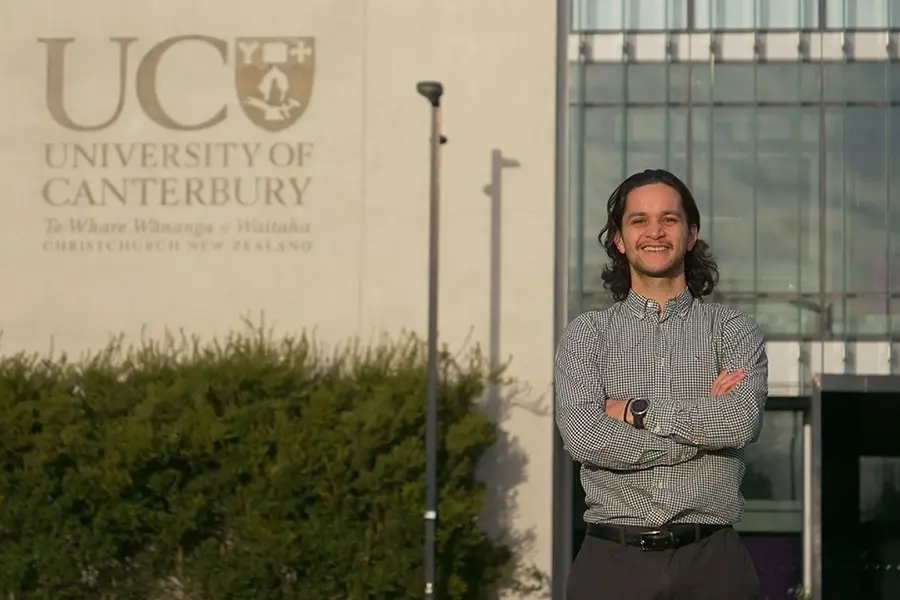Fuel for the future: Gavin’s Emerging Innovator journey
30 June 2025
For Gavin Hedley, science has always been about solving problems that matter. Now, with the help of the Emerging Innovator Programme, he’s taking the next step toward real-world impact—commercialising a novel technology that transforms waste biogas into renewable natural gas.

Developed during his PhD at the University of Canterbury (UC) under the supervision of Emerging Innovator alumnus Dr Matthew Cowan, Gavin’s gas separation technology targets a critical global challenge: how to reduce reliance on fossil fuels while securing future energy supply.
The innovation converts methane captured from sources like landfills and wastewater treatment plants into renewable natural gas — a direct replacement for fossil derived gas that can be used in the same infrastructure, by the same end-users. It’s a dual climate win: cutting emissions at the source while creating a cleaner fuel alternative.
“Wanting to solve real-world problems is what drew me to engineering, and why I stayed in research,” says Gavin. “Growing up in rural Tairāwhiti, a region that relies on primary industries, made me aware of how deep tech can support both economic growth and sustainability.”
Supported by the Research & Innovation commercialisation team at UC, Gavin applied for KiwiNet’s Emerging Innovator (EI) programme to explore the commercial potential of his work.
The Emerging Innovator Journey
“Joining the programme was like jumping in the deep end,” he says.
“As an engineer, it’s easy to get absorbed in optimising the numbers and physical hardware. A key mindset shift through the EI programme was to focus on the pain points we were solving, and frame the technology development around that.”
Through workshops, mentoring, funding and targeted support, the programme helped Gavin test the commercial potential of his idea—and gave him the tools to communicate its impact more clearly and confidently.
“Having difficult customer conversations, stress testing ideas by talking to investors and others in the ecosystem—it was a steep learning curve, but hugely rewarding.”
A highlight of the journey was the support of mentor Steve Lorimer.
“Having an experienced mentor in your corner to guide you through the programme is particularly valuable,” he says.
With EI funding, Gavin visited several biogas-to-energy facilities and attended an overseas industry conference to broaden his perspective on the sector’s challenges.
“That really shifted our thinking—we realised we weren’t just solving a technical problem, we needed to address the industry’s pain points around financing, constructing and operating these plants,” he says.
From concept to commercial opportunity
With support from UC and KiwiNet, Gavin and his team are now preparing to take their innovation to the world.
Fresh from completing the Aurora Climate Lab accelerator, they’ve secured Tier 2 PreSeed Accelerator Funding to validate their technology.
As well as engaging with industry and investors, their current focus is scaling up the core technology as they work towards developing pilot and demonstration plants here in New Zealand.
“It’s been hugely rewarding to see the technology we’ve been developing at UC over the past seven years progress beyond the lab—from idea, to lab, and now a functional landfill prototype that will retire much of the science risk,” says Gavin.
“The natural gas market is worth over US$4 trillion. If we can shift even a slice of that to renewables, the impact could be huge.”
